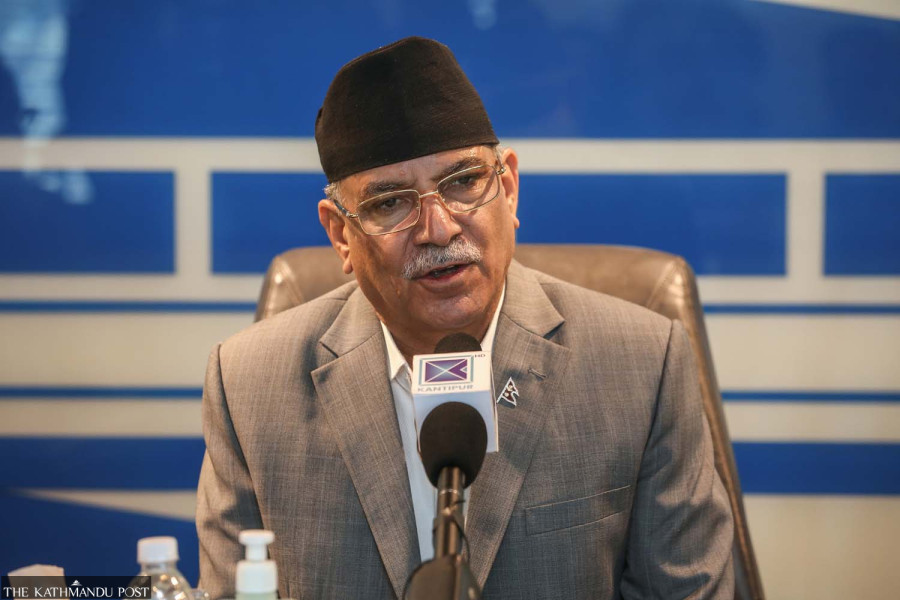Editorial
A call for change
Pushpa Kamal Dahal’s alternative as Maoist party chair will be found only when they start looking for one.
Chhabilal Dahal aka Pushpa Kamal aka Bishwas aka Prachanda has been a champion of change all his life—starting with his own name(s) to the political system. He loathes historical continuities and strives for ruptures—agragami chhalang, as he so enthusiastically pronounced in his initial days in parliamentary politics post the 2006 political changes. In fact, he chased change even as a young political leader of the Nepal Communist Party (Mashal), having changed several parties and factions before finally replacing his seniors and mentors to lead the party in 1989. But after three-and-a-half decades of being the party chief, he has no fascination for change—at least when it comes to leadership change in his party.
As the CPN (Maoist-Centre)—as the party is now called after several name changes over the past decade-and-a-half, struggles to stay relevant in the aftermath of its ouster from the coalition with the CPN-UML, the question of leadership change has become prominent once again. In earlier times, anyone who talked of change in the party's leadership, strategies or ideological standpoints would be forced to leave the party altogether—Mohan Baidya, Baburam Bhattarai and Netra Bikram Chand are in case. Dahal continued to maintain his tight grip over the party even if that meant things falling apart in the party. Prachanda, the fierce one, needed to show he was the boss.
This time around, Janardan Sharma is leading the band of those questioning Dahal's relevance as party chair or calling on him to hand over party leadership to younger leaders. As expected, Dahal's hardline supporters are worried that any discussion about changing leadership now, when the party is at its weakest since its resurgence in parliamentary politics in the mid-2000s, damages the party further. But Dahal's interlocutor himself has claimed that his calls for leadership change are aimed at ensuring that Dahal’s "revolutionary" contributions to Nepali politics last long. For Dahal to leave a lasting legacy as a changemaker, Sharma argues, he should step aside and make way for the new generation leaders within the party.
Sharma isn't wrong in this regard. After all, how long can a party remain relevant under a single leader? Indeed, there must be a saturation point somewhere, and the Maoist Party seems to have gone past that point. From its heyday as the single-largest party, with 220 seats in the 601-strong first Constituent Assembly to a distant third with just 23 seats in the 275-strong Parliament, the Maoist Centre has been on a downward spiral for quite long now. And with coalition change for making and breaking governments seemingly being the only definition of change for the party now, there are obvious misgivings about Dahal's leadership. Moreover, with the recent breakthrough in the Transitional Justice Act, there are new hopes for a fairly acceptable, if not entirely successful, culmination of the peace process. A post-peace Nepal would certainly seek a new dispensation across political parties. Perhaps it is time for the Maoist Centre to realise that Dahal's alternative as party chair will be found only when it starts looking for one.




 8.67°C Kathmandu
8.67°C Kathmandu














